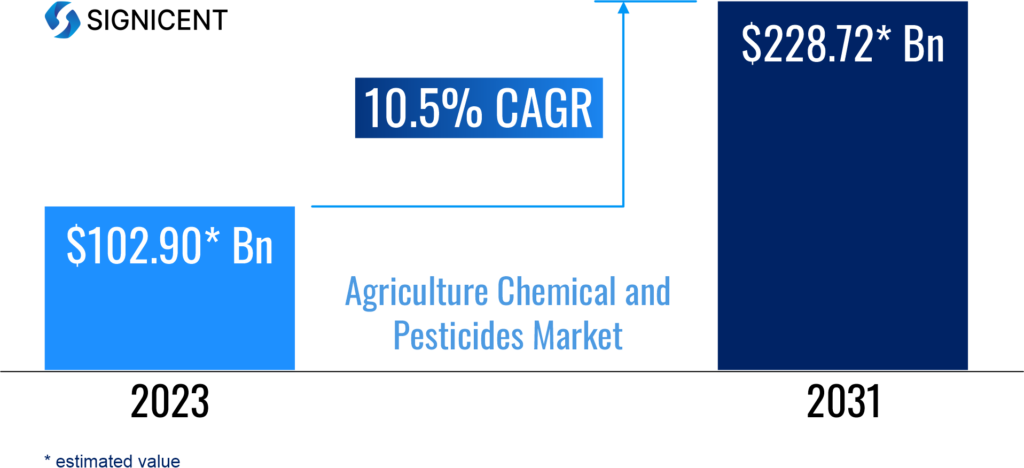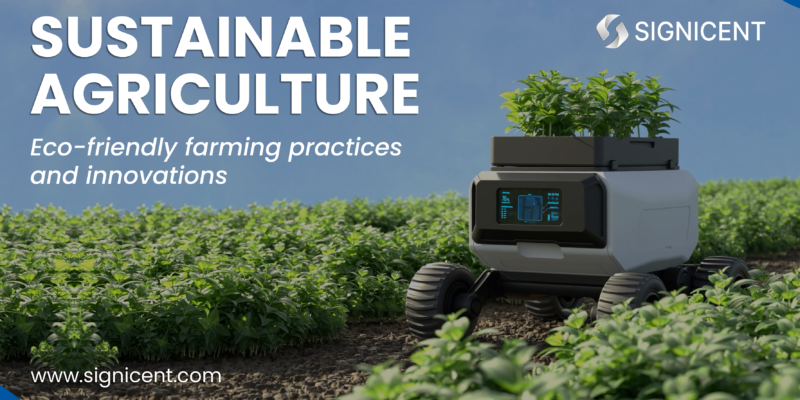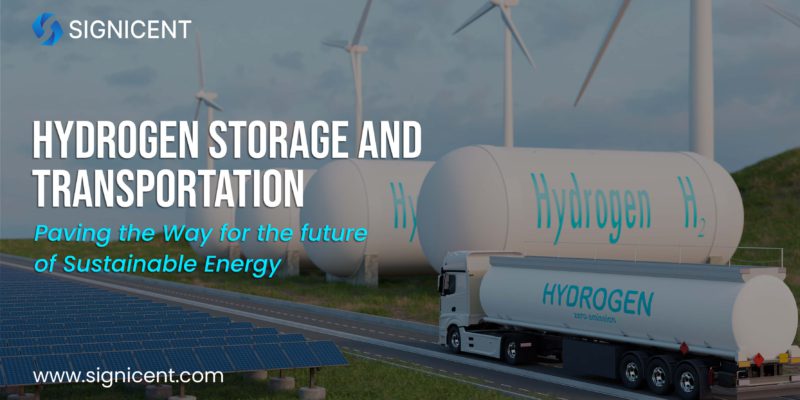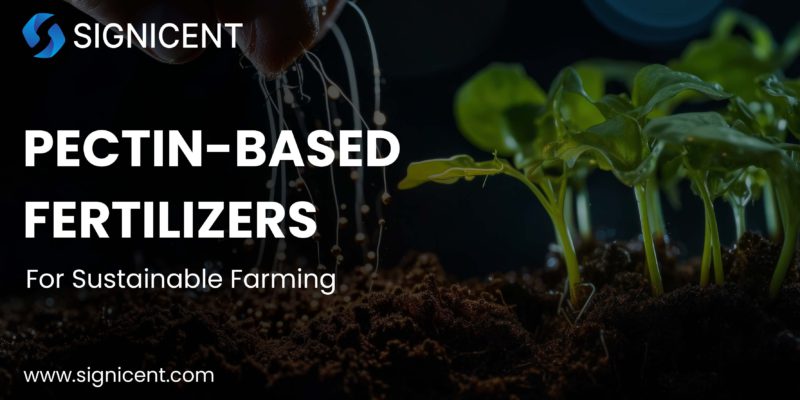Food security remains a paramount concern in our daily lives, particularly in light of the challenges faced by modern farming. Crop yields are increasingly threatened by droughts, unsuitable seasons, and the lingering impacts of toxic chemicals used for growth enhancement. Addressing these challenges is crucial not only for ensuring food availability but also for safeguarding the environment and human health. This blog delves into the pivotal role of sustainable agricultural practices and cutting-edge technologies in mitigating these issues. From precision farming methods that optimize water and nutrient use to organic farming approaches that prioritize soil health, farmers are embracing innovative solutions to enhance productivity while reducing ecological footprint. Join us as we explore how these advancements are reshaping agriculture towards a more resilient and sustainable future.
This blog uncovers the dynamic intersection of sustainability and Technology Monitoring related solutions in agriculture, uncovering how farmers worldwide are embracing new tools like IoT sensors, precision irrigation systems, and genetic editing to enhance yields while minimizing environmental impact.
Challenges in Modern Agriculture
Modern agriculture faces numerous issues that endanger global food security and environmental sustainability.
Here are the challenges:
1. Climate Variability: Changing climate patterns bring unpredictable weather conditions, including droughts, floods, and extreme temperatures, which disrupt crop growth cycles.
2. Soil Degradation: Intensive farming techniques, such as monoculture and excessive use of synthetic fertilizers and pesticides, deplete soil nutrients while affecting soil structure and health.
3. Water Scarcity: Water shortages and inefficient irrigation practices pose significant challenges, especially in arid regions where agriculture heavily depends on irrigation.
4. Pests and Diseases: Exotic pests and diseases threaten crop yields, requiring constant vigilance and management strategies that minimize reliance on chemical pesticides.
5. Labor Shortages: Difficulty in finding skilled agricultural laborers and seasonal workers impacts farm operations, especially during peak harvest times.
Fluctuating market prices and global trade dynamics also affect farmer incomes and investment decisions, posing financial risks.
Agricultural intensification and habitat destruction contribute to biodiversity decline, impacting ecosystem services such as pollination and natural pest control. This loss of biodiversity can also reduce the resilience of agricultural systems to environmental stresses.
These challenges reflect the complex and evolving nature of agricultural production, highlighting the need for sustainable practices and innovative solutions to ensure food security and environmental sustainability.
Signicent’s active participation in technology gap analysis is illustrated by its ongoing research and development efforts. The goal is to provide effective sustainable agricultural practices and technologies that are tailored to specific needs, ensuring enhanced productivity, environmental protection, and long-term benefits for a resilient agricultural future.
Each year Signicent provides consultancy to hundreds of organizations to help transform their innovations to value.
The Novel Innovations that Address the Challenges in Modern Agriculture:
Vertical farming is a method of growing crops indoors or in vertically stacked layers using controlled environments. It optimizes space and resources by employing techniques like hydroponics or aeroponics. This approach aims to increase crop yields while minimizing environmental impact and reducing dependence on external weather conditions.
To address soil degradation, sustainable farming practices like crop rotation, conservation tillage, and biofertilizers such as Phospholutions, RhizoSorb and hydroxyapatite from crab shell waste are being implemented. These advanced fertilizers, developed by companies like Phospholutions and Pursell, promote efficient nutrient use and contribute to soil health restoration efforts in modern agriculture.
Adding biochar to soil improves its fertility and structure, promoting sustainable agriculture. Its applications include enhancing soil nutrient retention, increasing water holding capacity, reducing soil acidity, sequestering carbon, and improving soil microbial activity.
Utilizing drip irrigation, which delivers water directly to plant roots, combined with soil moisture sensors that provide real-time data on moisture levels, significantly reduces water waste and improves irrigation efficiency.
Employing Bee Vectoring Technology (BVT) to distribute biological pest control agents during pollination, combined with Integrated Pest Management (IPM) practices that integrate biological, cultural, and mechanical methods, reduces the reliance on chemical pesticides and enhances sustainable pest management.
Precision agriculture utilizes satellite mapping, drone imagery, and soil sensors to optimize fertilizer and input application. Automated farming equipment, including robotics, autonomous tractors, and harvesters, reduces manual labor significantly. Drones equipped with sensors play a crucial role in monitoring crop health and minimizing labor-intensive field inspections. Additionally, drones are increasingly used for automatic fruit and vegetable monitoring/ picking, significantly boosting operational efficiency in modern agriculture.
These innovations reflect the agricultural sector’s commitment to overcoming challenges through sustainable practices and advanced technologies, ensuring a secure and resilient food system for the future.
By understanding Technology Intelligence – related solutions, stakeholders in the agriculture industry can collaborate to transition towards more sustainable and environmentally friendly practices.
Market research:
As per Signicent’s Market Researchers, the global market for sustainable agriculture chemicals and pesticides is likely to reach values in the ranges shown below:

Key players:
Presenting the top players in this sector dedicated to sustainability:
Startups:
About Signicent LLP
We assist businesses globally in their technology innovations, R&D, new product development, patents, valuation, product commercialization & market research needs.
Services Offered:
- Technology Intelligence
- Market Research
- Patent Landscape
- Technology gap analysis
- Design Patent Search
- Portfolio Analysis
- Freedom to operate
- Bio Sequence Search
- Innovation pipeline identification
- Chemical Structure Search
- Patent Invalidity Search
- Manufacturers Search/ Supplier search
- Patent Licensing Services
Elevate your Innovation and Research with Signicent’s cutting edge approach to assist you with Technology and Market related matters alongside the IP aspect of the analysis.


